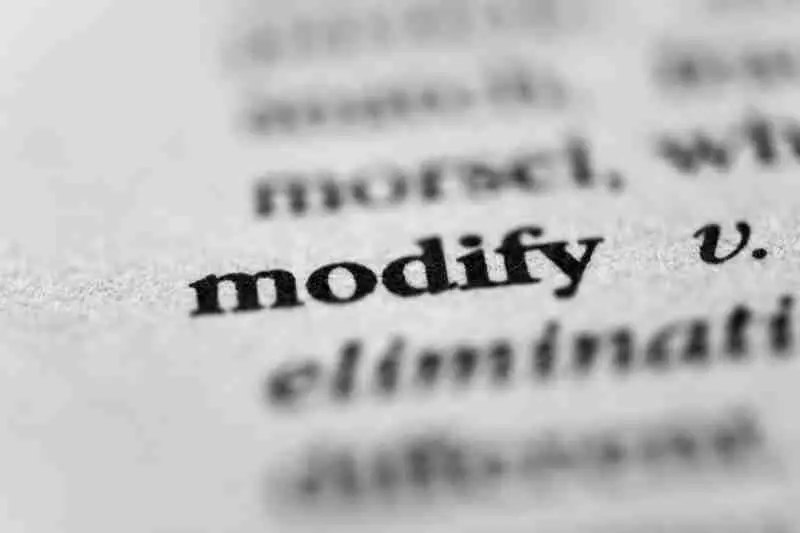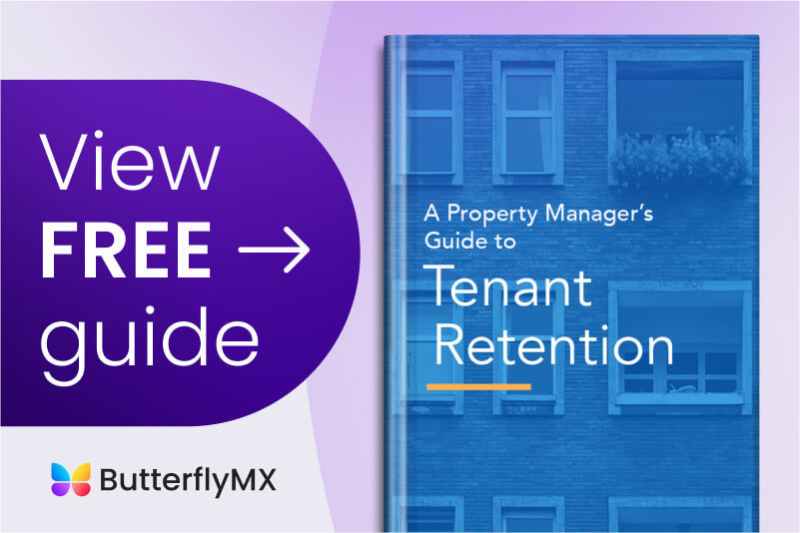
Disclaimer: This content is for informational purposes only. You should not construe any such information as legal, tax, investment, financial, or other advice. Nothing contained on our site constitutes a solicitation, recommendation, endorsement, or offer by ButterflyMX or any third-party service provider. ButterflyMX is not a financial adviser. You should always seek independent legal, financial, taxation, or other advice from a licensed professional.
Whether you’re a tenant about to enter into an agreement or a landlord trying to rent out space, you might be considering signing a modified gross lease. But how do they work, and how do they differ from other types of leases?
In this post, we explain a modified gross lease’s meaning and provide an example. Then, we go over the pros and cons of a modified gross lease and offer possible alternatives.
This post covers:
- What is a modified gross lease in real estate?
- What is an example of a modified gross lease?
- Pros and cons of an MG lease
- Is a modified lease right for your property?
What is a modified gross lease in real estate?
A modified gross lease is a type of lease in which a landlord and a tenant agree to share month-to-month costs.
Some of the costs you might negotiate in a modified lease include:
- Property taxes
- Sewage
- Water
- Heating
- Trash collection
- Maintenance
- Insurance
- Repairs and maintenance
MG leases are common for commercial buildings with many tenants. In these buildings, every commercial tenant kicks in for their share of utilities or other expenses covered in the agreement — and landlords are responsible for the rest.
Gross lease vs. modified gross lease
A modified gross lease is similar to a standard gross lease but with a few small changes.
In a gross lease, the landlord pays for all expenses outside of base rent, like taxes, maintenance, and utilities. In contrast, under a modified gross lease, landlords modify that agreement and pay for some expenses.

What is the difference between NNN and modified gross lease?
The difference between a NNN (triple net) lease and a modified gross lease is that under a triple-net lease, tenants pay for all expenses in addition to rent.
What is an example of a modified gross lease?
Let’s say you own a building that you rent out to three tenants. Your utility bill for one month costs $1000.
Under a modified lease, you split the cost of that bill with your tenants at an agreed-upon rate. You might agree to pay a flat $500 or a fixed percentage of that bill while splitting the rest among those three tenants according to their usage.
But there’s another way to split up costs with a commercial modified gross lease. You might agree that your tenants pay the whole utility bill every month — so, they’d pay the entire $1,000. But you might pay for other costs, like insurance, taxes, or repairs and maintenance.
Learn more about commercial real estate with ButterflyMX:
Pros & cons of an MG lease
If a modified lease is on the table, you should fully examine all of the pros and cons before signing it.
The benefits of a gross modified lease include:
Save tenants money
If tenants optimize their utility usage, they’ll be rewarded with a smaller utility bill each month. Under the terms of other leases, like a gross lease where the landlord pays every expense, a tenant has no reason to be economical.
Attract tenants with lower rent
While tenants will have to pay a certain amount to cover utilities each month, a gross modified lease means that you’ll cover some of those costs. As a result, you’ll be able to advertise your property with lower rent and attract more tenants.
Be hands-off
Under gross leases, landlords are responsible for paying all property expenses — which means that landlords must also chase down vendors, mail checks, and do paperwork.
But if you manage multiple properties or you’re an investor who doesn’t want to be involved in the day-to-day, you can give tenants greater independence by signing a modified gross lease.

Drawbacks of modified gross leases include:
Uncertain costs for tenants
The costs of utilities like heating or electric might vary wildly from season to season, or even month to month. Some tenants might prefer that you charge a predictable, flat fee instead of a variable number.
More work for tenants
If you deal with commercial tenants, they have their hands full already. Running a business is hard enough without having to worry about property taxes, insurance, or other building-related headaches.
Lack of tenant independence
Depending on the terms of the lease you sign, you might experience some friction with commercial tenants.
For example, say you agreed to pay for exterior repairs and maintenance, but your tenant wants to change the exterior of your building to better suit their business needs. Your lease might impede any modifications and make for an unhappy tenant.

Is a modified lease right for your property?
If you want to attract tenants with lower month-to-month costs, and you want your tenants to be reasonably independent, a modified gross lease is right for you.
However, you might want to explore different types of commercial leases if a modified lease isn’t the right fit.
Alternatives to a modified lease include:
1. Gross leases
Under the terms of a gross lease, landlords pay all month-to-month costs while the tenant only pays rent.
This leasing agreement has obvious cost-savings benefits for tenants — but it does come with a few downsides. Gross leases are typically more expensive per month than other types of leases. However, the income from a gross lease is steadier because the landlord doesn’t have to account for month-to-month changes.

2. Triple net leases
In contrast, a triple net lease is where the tenant pays for all operative expenses instead of the landlord. That’s what the “triple” represents — on top of rent, tenants pay for taxes, insurance premiums, and maintenance.
Some tenants might not want to pay for all of these additional costs. But other tenants will appreciate that a triple net lease gives them more independence.
For example, tenants in a triple net lease can pick their own insurance carriers, make certain building modifications, and optimize their utility usage.
Note: You may have heard of a “modified net lease,” as well — but these are the same as modified gross leases. Because gross leases place all expenses on landlords, and net leases place expenses on residents, anything in between is a modified gross or net lease.
3. Ground leases
With a ground lease, tenants rent a plot of underdeveloped land from an owner, typically for a lease term of multiple decades. Then, the tenant can build on the land during the lease term.
Many tenants who opt for ground leases are business franchisors. This is because they can rent one place for multiple years without lease changes, there is rarely hands-on property management, and it creates the opportunity for steady income.
Takeaways
- A modified lease is an agreement in which a tenant and landlord both pay their own portions of month-to-month costs, such as insurance premiums, taxes, utilities, and repairs.
- Are modified gross leases good or bad? They’re good for allowing tenants to have a certain level of independence while ensuring that landlords don’t cover 100% of month-to-month costs.
- Alternatives to MG leases are gross leases and NNN leases.
- When comparing a modified gross lease vs net lease, it’s important to remember that tenants pay for all costs under a net lease. This might cost a tenant more, but it grants them independence.







